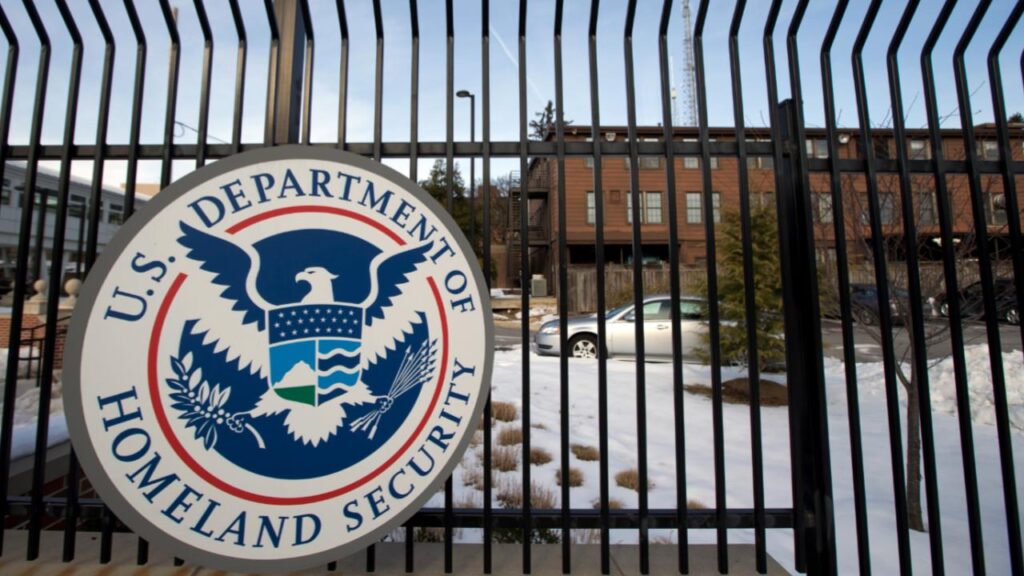As the U.S. gears up for the 2026 fiscal year, one of the most contentious pieces of legislation making its way through the House of Representatives is the Homeland Security funding bill. Spearheaded by House Republicans, this bill has sparked a fierce debate in Congress, drawing sharp divides between political parties, agencies, and the American public. While supporters argue that the bill is necessary for national security and border protection, critics say it’s a politically charged move that could jeopardize vital public safety programs.

2026 Homeland Security Funding Bill
| Insight | Stat |
|---|---|
| Border Security Funding Increase | The bill proposes an increase of $5 billion in border security funding, emphasizing physical barriers and technology. |
| Immigration Program Cuts | The bill slashes funding for refugee and asylum programs by 20%, raising concerns among human rights advocates. |
| FBI and Cybersecurity Funding | The bill includes an additional $1.2 billion for the FBI and cybersecurity, responding to increased global cyber threats. |
The 2026 Homeland Security Funding Bill is a pivotal piece of legislation that reflects deep divisions within the U.S. on issues like immigration, national security, and the role of government. While the bill promises enhanced security measures and increased investment in technology, it also raises serious concerns about human rights, the treatment of immigrants, and the balance between security and freedom.
As the debate continues, Americans will have to consider what kind of nation they want to be—one that prioritizes strict security measures at the border, or one that remains true to its tradition of welcoming the tired, poor, and huddled masses yearning to breathe free. The outcome of this legislation will shape the future of the U.S. and its role in the world for years to come.
What’s in the 2026 Homeland Security Funding Bill?
At the heart of the 2026 Homeland Security Funding Bill lies a proposed $85 billion in spending aimed at fortifying the nation’s defense against threats ranging from cyberattacks to illegal immigration. The bill seeks to address multiple urgent concerns, with a focus on:
- Border Security: A major portion of the bill’s funding—over $20 billion—would go toward enhancing border enforcement efforts, including the construction of physical barriers, the expansion of surveillance technologies like drones, and the hiring of additional Border Patrol agents. Republicans argue that this move is critical to curbing illegal immigration and securing the southern border.
- Cybersecurity and FBI Resources: In light of rising cyber threats and terrorism risks, the bill allocates significant funds for bolstering U.S. cybersecurity defenses. The Department of Homeland Security (DHS) would receive an additional $1.2 billion for anti-hacking initiatives. Similarly, the FBI would see an increase in its funding to tackle both domestic and international terrorism threats.
- Immigration and Refugee Programs: While proponents of the bill tout the border enforcement measures, its cuts to immigration services are contentious. Funding for refugee, asylum, and visa programs would be slashed by 20%, drawing criticism from immigration advocates who argue this undermines the U.S.’s humanitarian commitments.
The Political Battle Behind the Bill
The battle over the 2026 Homeland Security funding bill is as much about politics as it is about national security. Republicans, who control the House of Representatives, have framed the bill as a necessary step to “secure the homeland,” responding to rising concerns over immigration, crime, and terrorism. They argue that without enhanced border security and a stronger DHS, the nation is at risk of further instability.
However, the bill has faced strong opposition from Democrats and human rights groups, who see the proposed cuts to refugee programs as a retreat from America’s values. The reduction in funding for essential immigration services would likely cause delays in processing asylum seekers and could result in more deportations of individuals with legal claims to stay in the U.S.
The sharp division in Congress is mirrored across the nation, where debates over immigration policy have become increasingly polarized. Advocates for stronger border enforcement contend that the current system is too lenient, while those in favor of a more open immigration system argue that the U.S. should remain a haven for those seeking refuge.

What’s at Stake for Americans?
The stakes of this bill are high for both national security and domestic policy. Here’s a breakdown of what’s on the line for everyday Americans:
1. Border Security and Illegal Immigration
With border enforcement getting a substantial boost, Americans can expect a more aggressive approach to curbing illegal immigration. Proponents argue that this will reduce the strain on local resources, lower crime rates, and help control the flow of migrants. However, critics point out that such measures could lead to overcrowded detention facilities, separation of families, and human rights violations.
2. Cybersecurity
The increasing emphasis on cybersecurity funding under the bill responds to growing threats from hostile foreign actors. Cyberattacks targeting critical infrastructure, elections, and businesses have become more frequent and sophisticated. The bill’s proposed funding increase for the DHS would help to bolster defenses against these attacks, which could protect everything from financial institutions to healthcare systems.
3. Immigration and Humanitarian Programs
The slashing of funds for asylum seekers and refugee programs means fewer resources for individuals fleeing violence and persecution. Many experts argue that reducing these services would severely limit the U.S.’s ability to process asylum claims efficiently and humanely. The resulting delays could further burden local governments and NGOs involved in resettlement programs.
4. Economic Impact
A strong focus on border enforcement may have economic implications, particularly for industries that rely on migrant labor. From agriculture to construction, sectors that depend on immigrant workers could face significant disruptions. On the other hand, proponents argue that the bill’s investments in law enforcement and cyber infrastructure could create jobs and bolster national security, leading to long-term economic stability.
Reactions from Both Sides of the Aisle
While the bill is backed by most Republicans, it has been met with substantial resistance from Democratic lawmakers, who argue that its provisions are too extreme and punitive.
Democratic leaders have specifically criticized the bill’s proposed cuts to immigration services. House Speaker Hakeem Jeffries has called the bill “an assault on American values,” citing its impact on vulnerable populations. “We are better than this,” he said during a speech on the House floor. “America was built by immigrants, and we must continue to honor our legacy of providing refuge to those in need.”
Conversely, Republicans have framed the bill as an essential step toward restoring law and order. Representative Michael McCaul, a key sponsor of the bill, stressed that border enforcement is a top priority. “Without securing our borders, all other discussions on immigration reform are moot,” he stated in an interview.
Potential Path to Passage
The bill’s future in Congress remains uncertain. While it has passed the House, it will face an uphill battle in the Senate, where Democrats hold a slim majority. To become law, the bill will need to navigate numerous amendments and potential vetoes from the White House. Given President Biden’s administration’s more liberal stance on immigration, any bill with cuts to refugee programs or harsh border measures is likely to face significant pushback.
The negotiation process could see some provisions altered or stripped out entirely, particularly those that deal with immigration. However, any compromise is likely to be a hard-fought battle, with both sides refusing to back down on what they see as key national priorities.






